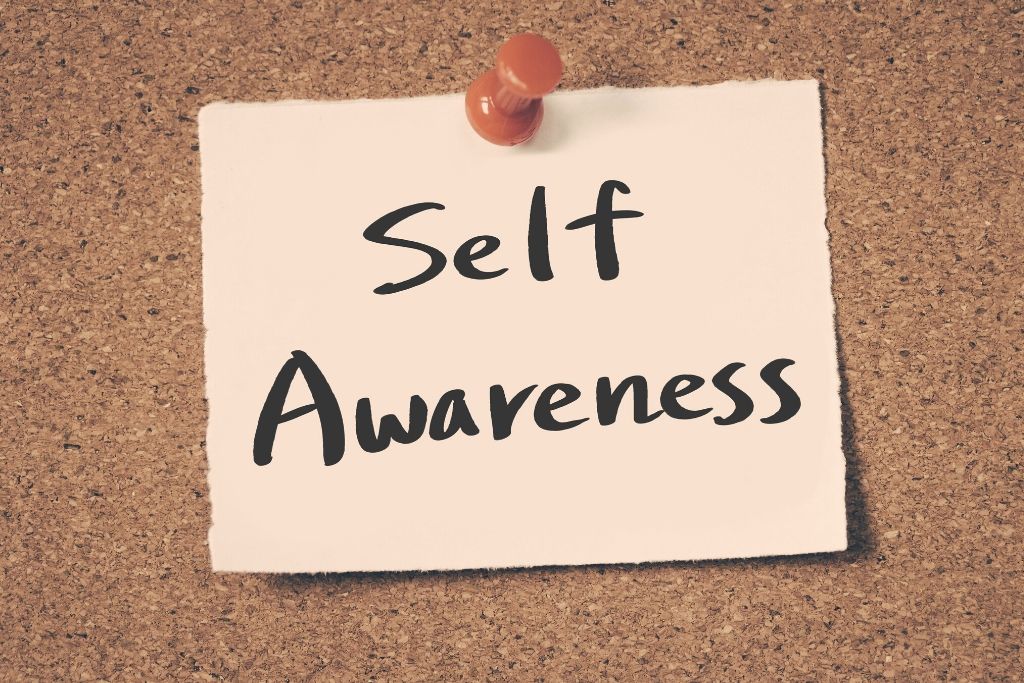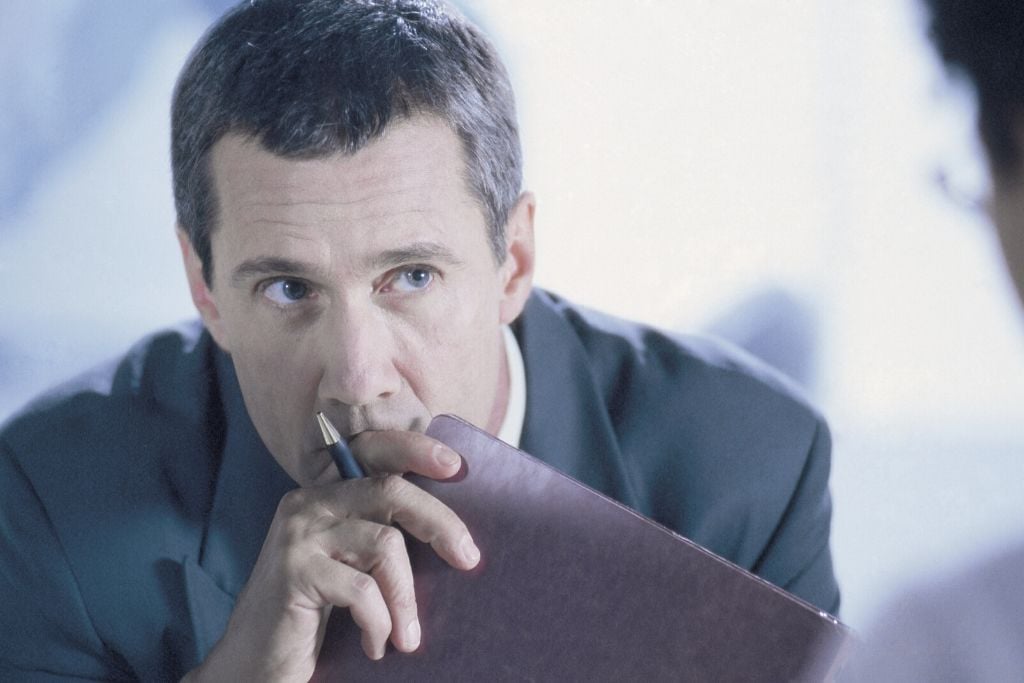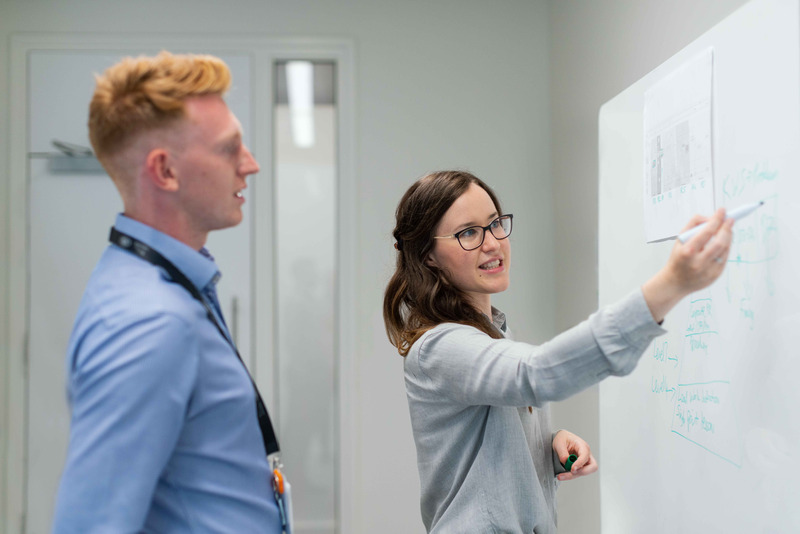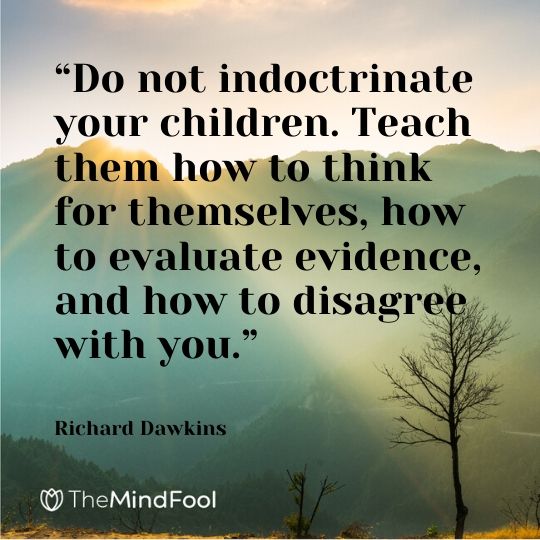
Several times, we read a piece of news and draw a conclusion. We never think about the authenticity of the news. But with critical thinking, you conclude after considering all the facts. In critical thinking, sources such as facts and data hold an important position. A good critical thinker discriminates between useful and worthless information. With this, he/she becomes immune to figuring out solutions to complex problems.
Individuals with critical thinking skills stay focused. They also are inclined to upgrade their knowledge. And so, they become the best leaders who boast a thought process of improvement.
With this, we know how important it is to have the quality of the skills. Therefore, with this article, we are going to explore all about critical thinking. So, let’s start with the definition.
Critical Thinking Definition
SUMMARY
Critical thinking is an ability that helps you to think clearly without any inhibitions. Besides, it helps in establishing a logical connection between ideas.
Richard Paul and Linda Elder define critical thinking as, in short, self-directed, self-disciplined, self-monitored, and self-corrective thinking. They further state that it presupposes assent to rigorous standards of excellence and mindful command of their use. It also entails effective communication, problem-solving abilities, and a commitment to overcome our native egocentrism and sociocentrism.
Precisely, it is the ability that helps you in evaluating information for making logical and informed decisions. Moreover, it helps in keeping personal views, opinions, or preconceived notions, aside from while focusing only on factual information.
But not every person is a critical thinker! So, hereby we are listing some of the traits that are the foundation of critical thinking.
Characteristics of Critical Thinking
1. Be Observative

SUMMARY
While implementing critical thinking, it is important to review every result. And for that, it is important to be observative. While collecting data, make sure to not miss any detail. Also, after getting the desired result, be observative to install changes, if any!
Observation is one such skill infused in each one of us since high schools. Our teachers and parents train us to observe every minute detail. As children, we develop this ability to explore the world around us. We use senses to collect information and with writing abilities we document data.
This deep observation helps shape thinking and understanding of the world. Besides, a critical thinker possesses all these skill sets. Moreover, he/she draws a conclusion based on detailed analysis and documentation. A critical thinker asks the right set of questions and interprets it in the best possible way.
2. Be Well-informed

SUMMARY
When bound to give fair justice, it is important to know the whole scenario. When you are well-informed, you prosper as a thinker and can dispose of complex problems.
Be it any subject content, an individual with the skills is well-informed. Rather, they are alert when it comes to applying solutions. Also, while looking for information, they stay focused and stick towards the aim. They are very attentive towards facts and apply best thinking practices.
But, there are times that a critical thinker might have his/her perception and point of view. And this might lead to a biased decision. But it’s best to distinguish facts from assumptions, test the situation, and control emotions. Once you progress through an unbiased approach with absolute information. Then it becomes easy to make a sound decision.

3. Be Self-aware

SUMMARY
A critical thinker is always aware of weaknesses and strengths. Introspection helps them to gain excellence and mindful command over complex issues.
While strengthening critical thinking skills, it is imperative to know your strengths. With this, one becomes aware of his/her thinking capability. Critical thinking involves the thinker in becoming aware of his/her attentiveness. It also helps in mapping the biases along with scrutinizing thoughts and feelings.
Moreover, you become aware of whether you are capable of making a sound decision or not. Self-awareness helps you strike a balance between your mental state.
4. Be Communicative

SUMMARY
Critical thinking and communication go hand-in-hand. Problems in communication arouse if an individual is incapable of critical thinking. The clearer your thinking, the clearer the communication would be!
Critical thinking entails effective communication. A study suggests that critical thinking and communication has a positive correlation. A critical thinker must be very precise in effective communication and problem-solving tactics. He/she must have a clear thought process to derive an unbiased solution.
With critical thinking, the individual follows the thought process. And communication helps in imparting the right decision. Also, the individual implements non-verbal and non-violent communication too. And expresses ideas and opinions in an efficient way.
5. Be a Listener

SUMMARY
It is unfair to give a decision, without considering the other side of the story. But in critical thinking, vague results hold no value. A critical thinker listens after which he/she talks and gives a decision.
Communication is furthermore complemented by good listening. A decision without active listening to the other side holds no value. An individual with critical thinking will not limit himself to giving decisions alone.
Rather, he/she listens to both sides after which makes the final decision. Critical thinker assures to listen to every point, instead of being an inactive listener.
6. Be Curious

SUMMARY
Critical thinking is like a commitment to overcome problems. It also assures a possible solution by gathering information from relative sources. But before that, you must be curious and should have a nose for information.
Curiosity is a blessing as it strengthens academic performance. Once curiosity is shaped at a younger age or at higher education, then it helps in creating successful leaders. Besides, with the help of critical thinking, it becomes easier to study people around. When thinking complemented by curiosity, an individual will never analyze face value. Rather he/she will dig deeper and study every facet.
A curious person will always wonder about the things happening around. Curiosity with critical thinking kicks your thought process. It also offers an avenue to gain profound knowledge.
7. Be Creative Thinkers

SUMMARY
Creative thinking helps in tackling the problem with unique viewpoints. And with the backing of critical thinking, analyzing viewpoints becomes easier and effective.
With critical thinking, creative thinking is also important. A study states that creative thinking has aspects of critical thinking, and it has aspects of creativity. Creative thinkers opt for problem-solving tactics that are out of the box. They practice various interests, viewpoints, and experiment with methods.
Creative thinkers generate ideas and good critical thinkers analyze those ideas. If creative thinking is introducing ideas, then critical thinking helps in creating a focus on those ideas. So, an efficient critical thinker can strike a balance between creativity and critical thinking.
Now you know the common characteristics of critical thinking. Now let’s explore why it is important to be a critical thinker.
Importance of Critical Thinking
1. A boost in career

After complex problem solving, the World Economic Forum, ranks critical thinking as one of the most in-demand and important skills that every employer is looking for. Because be it any profession or industry, their job descriptions state that they require critical thinking.
A person with good skills has the ability to analyze while boasting of the quality of solving problems. So, if you want to fly high in your career. Then it is imperative to mention critical thinking in your resume, cover letter, and also during your job interview.
2. Critical Thinking helps in decision-making

Not all decisions are easy. There are some which need a lot of thinking. Because your small decision may hamper the course of life. But with critical thinking, your everyday life becomes easygoing.
Because it gives you the sense to see beyond the raw data. Also, it helps in promoting deeper understanding, maintaining an open mind, and building inner strength. All-in-all improving critical thinking skills, makes you smarter to not fall prey to common logical fallacies.
3. Critical Thinking brings in happiness

A study relates that with the development of critical thinking, life satisfaction increases. And why not? A wise decision helps to lead on the path of happiness. Moreover, with critical thinking you can measure your strengths and weaknesses, thus providing room for improvement.
Above all, developing skills helps in putting forth your thoughts and beliefs in a better way. Further helping for better communication.
4. Critical Thinking makes you an informed person

A critical thinker never hears one side of the story. They do not consider biased opinions as well. Unless they undertake detailed research, they never give their verdict. And that’s why they are well-informed because they boast of factual information.
Also, they are in a position where they can differentiate fake news because they don’t get influenced by any kind of hysteria.
5. Forms better relations

The development of critical thinking makes a person more open-minded. And this open-mindedness helps in striking a conversation while understanding others points of view.
Thus, making them empathetic while getting along with people. Most importantly, critical thinkers cannot get fooled by manipulations or bad intentions. They know how to analyze information and draw a conclusion based on those inputs. That’s why they tend to have good relations with others.
So, these above-mentioned pointers indicate how important it is to apply critical thinking. So, let’s move forward with the steps to master this skill.
Critical Thinking Skills – 5 Ways to Practice
Now, that you know the characteristics and importance of critical thinkers. But still many might be thinking ‘how to think critically’. It’s now time to explore the steps to develop critical thinking skill sets.
1. Raise Questions

Raise questions as much as you can. Do not worry about what people think about you. These questions are the ones that will lead you to your goal. As you question deeper, you explore new ways. Also, it helps you to learn and grow!
2. Stop Assuming

While making a decision, stop assuming things around you. Don’t be judgmental either! It is difficult to challenge your own decision. But consider other’s points of view and compare them with yours. And if you are not doing all this, then you are not undertaking critical thinking.
3. Undertake Research

Whatever information you’re treated with, might not be true. If you are feeling challenged by a certain problem, then read books or Google to gain knowledge. More information you get, you’ll be more prepared to figure sensible answers for every query.
4. Divide The Problem

Some problems are too huge to solve in a brief period. So, break them down into small parts. Analyzing smaller parts helps to arrive at a solution.
5. Simple Explanation

While giving the final verdict, make sure to keep it simple. With this, you can practice rigorous standards of excellence. Don’t let your native egocentrism come in the way of giving away solutions. So, stay put and showcase your results in the best possible way.
TIP
To strengthen your critical thinking skills, then remember 5 W’s and 1 H. Question yourself with these questions – Who, What, When, Where, Why and How!
Let’s dig a little deeper and explore some of the examples, exercises, and questions for critical thinking. It will give you a better understanding of this term.
Critical Thinking Examples
- Many children still believe in the folklore of Tooth Fairy. They continue to place their baby tooth under the pillow, thinking that the tooth fairy will leave money. But when you are a critical thinker, you know such things are unlikely. Despite the money being present below the pillow. As a critical thinker, you are able to differentiate.
- If you are running a construction company, you won’t simply start your work. Because you need to evaluate factors like – risk, safety measures, climate change, or even financial assessment, and political interference. As a critical thinker, you will assess all these hazards. Further, you will also think about employee’s safety to avert any accidents or injuries.
- The Human Resource (HR) department is a classic example of critical thinking. They get a pool of information about various candidates. But they do not take any hasty decisions. They carefully browse through resumes, cover letters, and analyze which complements their job description. They do not give privileged treatment to candidates. Because they are aware that hiring the best talent is fruitful for the company. So, there are no rooms for biased opinions or decisions.
- When there are disagreements within employees. Then the manager plays the key role of a critical thinker. He/she tries to be objective while resolving conflicts and undertakes active listening. An unbiased approach is maintained and all alternatives are thought of! Indeed, a fair decision is drawn out of all disagreements.
- Parents are considered as the best critical thinkers. Because while deciding their child’s future, they analyze their financial investment and make arrangements likewise. Amidst this, they consider all factors – overall income, household expenses, other expenses like fuel, etc.
Critical Thinking Questions To Improve Your Skills
As mentioned above, 5 W’s and 1 H play a vital role in critical thinking. So, we have divided some classic questions in the respective category.
1. What?
- What will I do, if things happen….?
- What will be the outcome, if I take this decision?
- What questions to ask the hiring manager before accepting the offer?
- What should be the conclusion of a viewpoint?
- What is the other side of the story?
2. Who?
- Who is the most responsible person to undertake a duty?
- Who would be affected by a piece of news?
- Who should have won the elections?
- Who will have to face the consequences of the decision?
- Who will benefit from an action plan?
3. Where?
- Where does the story drift?
- Where to dig for apt answers?
- Where to gain maximum information?
- Where is the problem usually found?
- Where can one make amendments?
4. When?
- When did the problem start?
- When is the best time to figure that solutions are working?
- When is the best time to stop inferring?
- When is the best time to conclude?
- When will the world and people gain the utmost success?
5. Why?
- Why did the employee decide to take such a decision?
- Why did that particular problem arouse?
- Why did the manager ask that particular question?
- Why is this meeting so important?
- Why did the colleague choose to say such harsh words on social media?
6. How?
- How is this situation different from others?
- How will educational research affect my career?
- How will the problems get solved?
- How will my decision affect others?
- How should managers react to a proposition made by the employee?
Critical Thinking Exercises
- Start reading about various leaders – their failure as well as success. With this, you will be able to understand how their thought process works. This will not only expand knowledge but also encourage you to learn new things. Try and learn their strategies for earning financial stability. With this you will earn new opportunities for your company and yourself.
-
Albert Einstein has beautifully said. “If you can’t explain it to a six-year-old, you don’t understand it yourself.” This quote means whether you have an understanding of a complex problem. And how you break down and explain in simple terms. So, try to understand the problem to improve your critical thinking skills. Try talking to people and you never know you may find a different path altogether for problem-solving.
- Step out of your comfort zone. And expose yourself to new learning and creations. Every new person you meet might introduce you to a new perspective. So, grab this opportunity and explore new ideas to assimilate them into your skills.
- Surround yourself with famous critical thinkers. Because you will learn the nuances of sharing your thoughts and opinions in a better way. With this, you will be exposed to new objectives, thoughts, and a pool of knowledge.
- Playing games isn’t bad all the time. But make sure to play games that improve your critical thinking. They will not only give you a break from a monotonous life but will also help develop skill sets. Further, with enhancement in the process, it makes an individual more productive.
- There are many problems, which many companies are not willing to take forward. Adopt such problems and build a team to tackle the problem. Help your team with analyzing, do not stop questioning, and start developing probable solutions. With this, you will be able to map yourself as a leader and a troubleshooter. Likewise, you will gain confidence while teaching critical thinking.
- Document every success and failure. This will help you analyze where you are falling short in the critical thinking process. Also, it will help you to measure the impact of your decisions.
Critical Thinking Quotes
Before we wind up this critical thinking guide. We are listing some of the best quotes that will inspire and motivate you for applying critical thinking.
1. “Too often we give children answers to remember rather than problems to solve.”
– Roger Lewin

2. “I don’t want people to say, ‘Something is true because Tyson says it is true.’ That’s not critical thinking.”
– Neil deGrasse Tyson

3. “It’s sort of a mental attitude about critical thinking and curiosity. It’s about mindset of looking at the world in a playful and curious and creative way.”
– Adam Savage

4. “If there was one life skill everyone on the planet needed, it was the ability to think with critical objectivity.”
– Josh Lanyon

5. “The important thing is not to stop questioning. Curiosity has its own reason for existing.”
– Albert Einstein

6. “The essence of the independent mind lies not in what it thinks, but in how it thinks.”
– Christopher Hitchens

7. “Do not indoctrinate your children. Teach them how to think for themselves, how to evaluate evidence, and how to disagree with you.”
– Richard Dawkins

9. “Critical thinking is thinking about your thinking while you’re thinking in order to make your thinking better.”
– Richard W. Paul

10. “Truth has nothing to do with the conclusion, and everything to do with the methodology.”
– Stefan Molyneux

11. “Critical thinking is the ability to evaluate options, weigh aberrations and make unforced decisions.”
– John Baldoni

Critical Thinking Books
Here are some suggestion for good books to understand critical thinking –
- Thinking, Fast and Slow (Hardcover) by Daniel Kahneman
- Asking the Right Questions: A Guide to Critical Thinking (Paperback) by M. Neil Browne
- The Demon-Haunted World: Science as a Candle in the Dark (Paperback) by Carl Sagan
- The Art of Thinking Clearly (Hardcover) by Rolf Dobelli
Closing Thoughts
Critical thinking might not sound easy. As it involves information that is new and needs to be explored. But we hope that the above-mentioned tips will shape your abilities.
Also, if you are looking forward to learning these skills, then higher education is the best medium. Moreover, hoping that this guide helps you to think by knowing the perfect traits of critical thinking.
Neelambari started her rollercoaster ride as a journalist at Pune Mirror (Times Group). After which she started exploring the world of content writing. Today, she boasts more than five years of experience filled with creativity and diversity. During this tenure, she explored various mediums like articles, blogs, social media posts, website content, and much more. And this content ranged from Gynecology, Ayurveda, Dental health to nutrition. However, she enjoys the most writing about Psychology and other medical streams. She loves writing and aims to bring positive changes at least in some lives with her articles on www.themindfool.com
